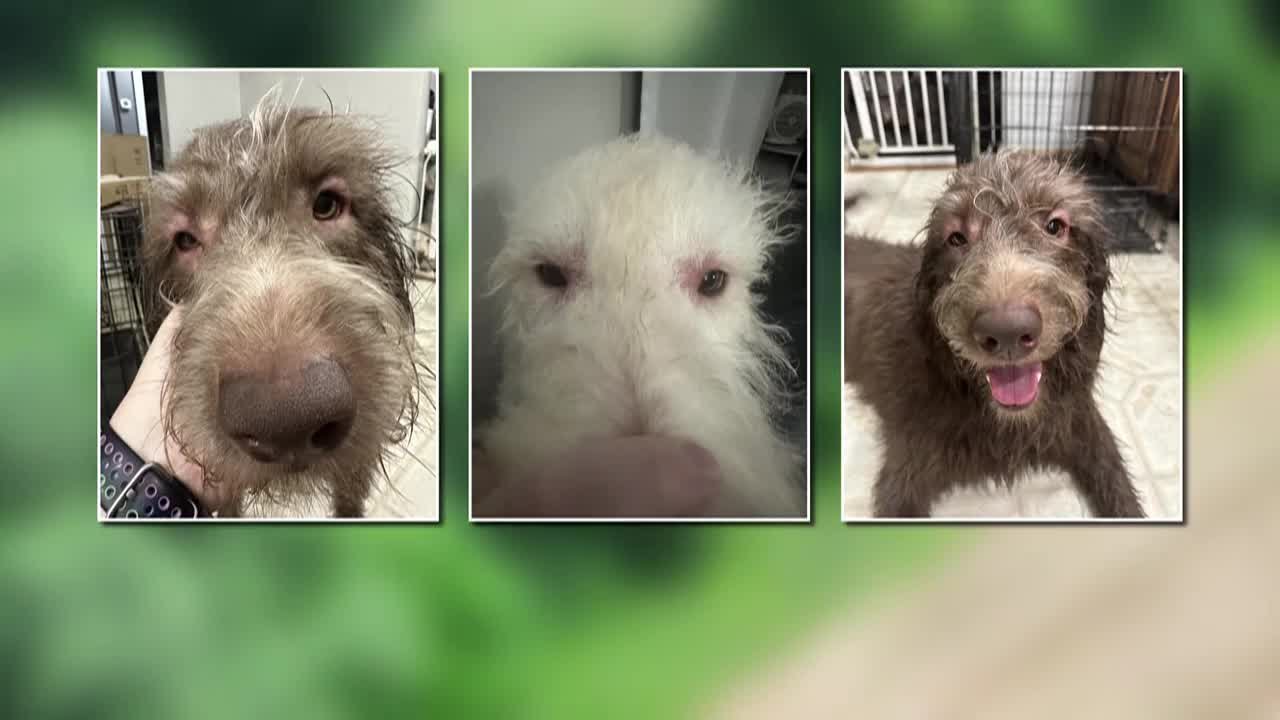Illinois Woman Says Crop-Spraying Drone Doused Her Service Dogs With Pesticides

WATERLOO, ILLINOIS – An Illinois woman is calling for accountability after claiming her medical alert service dogs were doused with pesticides from a neighboring farmer’s crop-spraying drone.
Service Dogs Exposed During Training
For years, Mary McNeight has trained service dogs at her Waterloo home, helping them detect medical emergencies before they happen. But this summer, she says a drone spraying a nearby farm drifted onto her property during a training session.
“It was literally out of a Terminator movie, like that drone coming over the property,” McNeight recalled. “And then my dogs ended up fighting. I was like, ‘Oh my God.’”
McNeight says the pesticide made contact with both her and her dogs, leading to immediate health issues.
Dogs Hospitalized With Severe Reactions
According to McNeight, several of her dogs experienced swollen eyes, vomiting, and muscle pain. One dog required hospitalization.
She said veterinary treatment has already cost thousands of dollars, and she worries about long-term impacts, including whether her dogs will still be able to breed.
“They have to spray fields. People should not be in the way. They should not be unknowingly exposed to chemicals,” McNeight said.
Dispute Over Drone Use
A Waterloo police report confirmed the farmer hired a drone operator to spray Prosaro Pro 400 fungicide. Flight records show the drone did not cross McNeight’s property line, and wind speeds were within legal limits.
Still, McNeight insists the chemicals drifted onto her land. Both the farmer and drone operator have turned the matter over to insurance but have not commented further.
Experts note that pesticide drift from drones is rare when equipment is used properly. Dennis Bowman, an agricultural technology specialist, said drones are generally safer than traditional crop dusters but emphasized the need for accountability.
Push for Stricter Oversight
The Illinois Department of Agriculture reported 241 pesticide misuse complaints in 2024, with only 21 leading to fines. Just one involved a drone.
McNeight says current laws are not strong enough. While a 2024 law requires government agencies to notify residents before spraying pesticides, it does not apply to farmers or private applicators.
She is now urging lawmakers to expand protections, worried about what could happen if neighbors — or children — are caught in similar incidents.
“Imagine what would have happened if I had my neighbor’s kids over here and they got sprayed too,” McNeight said.
The incident underscores the growing tension between advancing agricultural technology and public safety concerns. As drones become more common in farming, residents like McNeight are pressing for stronger safeguards to prevent unintended harm. For more updates on Illinois community stories and public safety issues, follow ChicagoMusicGuide.com.
